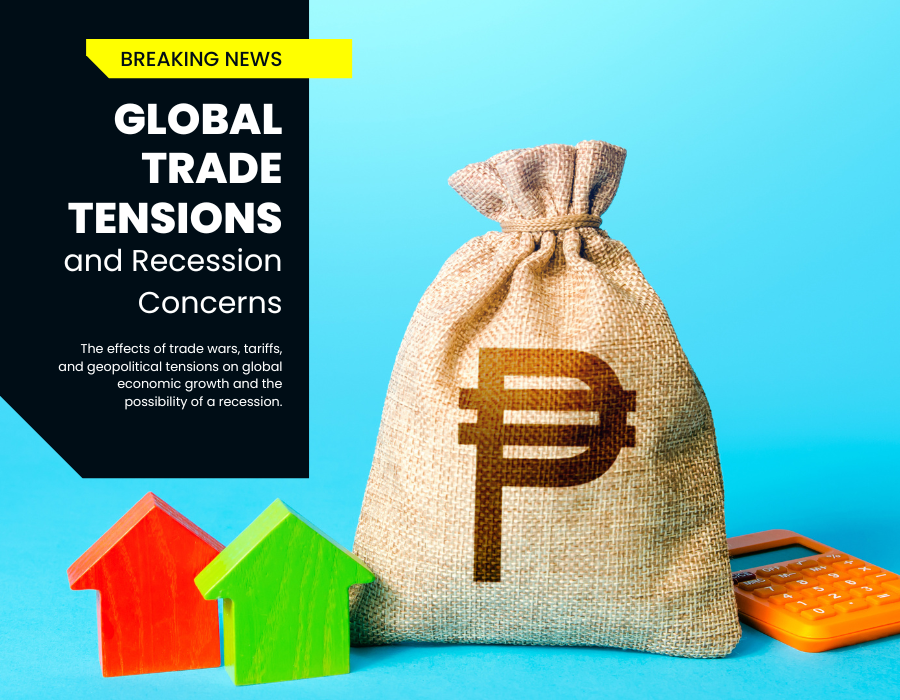As global economic tensions rise, mainly through tariffs and trade wars between major powers, countries like the Philippines find themselves in a vulnerable position. While not directly involved in the disputes between giants like the U.S. and China, the Philippines, being an open, trade-dependent economy, feels the ripple effects deeply.
In an era where the world is tightly connected through supply chains, finance, and digital platforms, the Philippines must remain alert, adaptive, and strategic in responding to these global shocks.
What Are Tariffs and Trade Wars?
Tariffs are taxes imposed on imported goods, often used to protect local industries. When countries retaliate with their own tariffs, it escalates into a trade war, disrupting global commerce and raising prices across economies.
The U.S.-China trade war, for example, had a global impact, slowing down trade volumes, shifting supply chains, and creating economic uncertainty. Though the Philippines wasn’t a direct participant, it still suffered collateral damage due to its ties with both nations.
How It Impacts the Philippines
Export Industry at Risk
The Philippines heavily relies on exports, particularly electronics, semiconductors, and agricultural goods. Trade wars that affect global demand or disrupt trade routes can result in slower export growth, loss of orders, and lower foreign earnings.
Inflation and Higher Costs for Consumers
Tariffs drive up the prices of imported goods and raw materials. As costs increase, Filipino businesses often pass them onto consumers. This can worsen inflation—already a concern due to global fuel prices and food shortages—making everyday life harder for ordinary citizens.
Job Uncertainty in Key Sectors
Trade-related industries such as manufacturing, electronics, and BPOs may face a slowdown if international demand shrinks. When multinational corporations adjust their operations or shift to other countries, Filipino jobs are at risk.
Weaker Peso and Financial Volatility
Global trade tensions often affect investor confidence. Capital flight to safer economies can weaken the Philippine peso, raise borrowing costs, and create financial instability, especially for a country still recovering from the economic effects of the pandemic.
Limited Buffer for Economic Shocks
Unlike some countries, the Philippines has limited fiscal and foreign reserves to cushion the impact of a prolonged trade war. A lack of contingency planning and slow policy response could amplify the damage.
Dependency on Imported Essentials
From oil and fuel to machinery and food items, the Philippines imports many of its essentials. Any disruption in global trade or spike in international prices can directly affect supply and affordability at home.
What Can the Philippines Do?
Despite the risks, there are paths forward:
Diversify Trade Partners: Strengthen ties beyond traditional allies—look more to ASEAN, the EU, India, and Africa.
Strengthen Local Industries: Invest in agriculture, manufacturing, and tech to reduce import dependence and improve food and energy security.
Develop Strategic Reserves: Build buffers like food stocks, fuel storage, and emergency funds to prepare for external shocks.
Support Innovation and MSMEs: Help small businesses upgrade their competitiveness and connect to global value chains.
Push for Multilateralism: Stay active in trade negotiations and regional blocs to protect Philippine interests.
Conclusion
While the Philippines may not be a driver of global trade tensions, it cannot afford to be a passive observer. The country must adapt swiftly, build resilience, and invest in long-term solutions that protect the economy and the Filipino people.
Tariff and trade wars remind us of a harsh truth: In an interconnected world, economic decisions made far away can hit close to home. But with smart policies, strategic leadership, and a united citizenry, the Philippines can not only survive—but thrive.

 Business8 months ago
Business8 months ago
 Dipolog1 year ago
Dipolog1 year ago
 Dipolog1 year ago
Dipolog1 year ago
 Business1 year ago
Business1 year ago
 Dipolog1 year ago
Dipolog1 year ago
 Business8 months ago
Business8 months ago
 Dipolog1 year ago
Dipolog1 year ago
 Dipolog1 year ago
Dipolog1 year ago
















